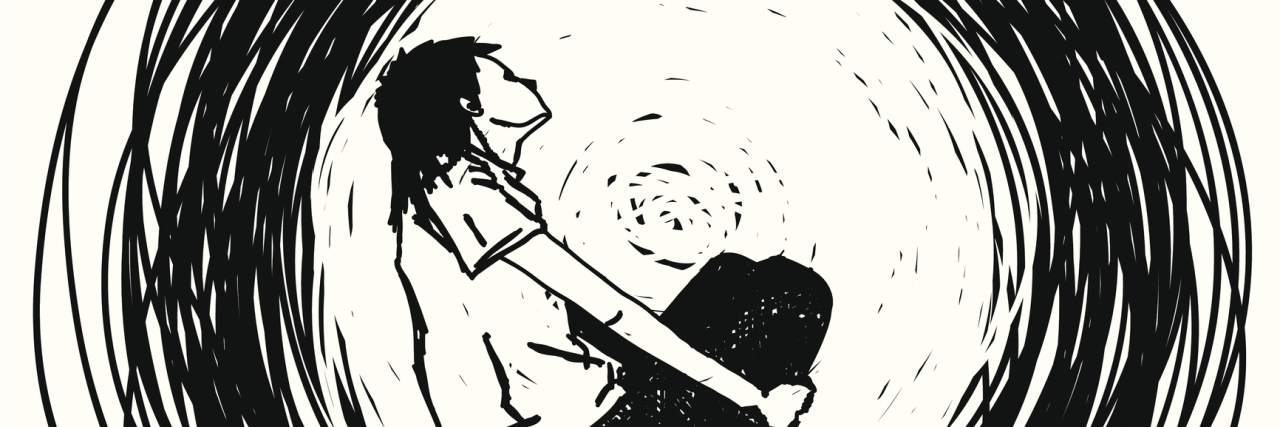I’m going to be frank for a moment. I have a mental illness, a chronic mental illness, which I will likely struggle with for the rest of my life. I take medication daily and I am adamant about not missing doses. I try to eat well, sleep well and exercise. I go to therapy weekly, have a strong support system and a strong faith. Right before I was diagnosed, I fell into a dark place and I will take every precaution I can not to be thrown back into it. But bad days will happen regardless of how rigid or committed I am to recovery and health. Awful days will happen. Days where the suicidal thoughts are relentless — they happen. Those days, which sometimes turn into weeks, where I can’t get out of bed or shower or smile or remember to brush my teeth, they are expected. Bad days will happen and it’s often on these days that I receive more judgment than I do gentleness and understanding. On these days I need compassion, grace and understanding that I’m fighting something really hard — and maybe some ice cream. What I do not need is to be questioned about whether I took my medication, if I had too much to drink this past weekend or if I’ve been staying up too late. Unless you deeply and truly know what it’s like to wake up one day and have your own voice telling you to kill yourself, I don’t think you are allowed to pass judgment.
I know that you care, but on the days when I tell you I’m struggling, I don’t need you to point out where I probably went wrong because my biggest fear is that you’re going to assume I am not trying hard enough and walk away. When I reach out, I am afraid that the frustration of this “thing,” this inconvenience, also known as my mental illness, will eventually be too much for you. You can walk away from this, downplay the severity or outright ignore it, and I am terrified that you will. On the days that I tell you I’m struggling, there are 100 more I didn’t.
When you don’t live with a mental illness, I think it can be hard to comprehend how something like this can take a hold of your mind. I know because I remember not being like this. I realize now after being medicated that my moods were never stable, but I can remember what it’s like to not have suicidal thoughts, to not have to be vigilant about sleep or refilling my medications or monitoring sugar intake to avoid a mood swing. I completely empathize with the mindset that there is no way something can be so relentless, persistent and unavoidable. I know it is hard to understand and uncomfortable and awkward to sit with, but on the days when I reach out I don’t need judgment. I don’t need answers or solutions that neither of us have. I don’t need perfect words. On the days I reach out, I need to know I’m loved. I need to know that the voice, which sounds an awful lot like my own, telling me the world would be better off without me is wrong. I need to know I’m not alone. I need to know there is someone who will go for a walk with me, pick up dinner for me, pray with me or just sit with me.
I want to take the liberty to speak up for anyone reaching out on those bad days. On the days we tell you we’re struggling, we don’t need judgment or solutions, we just simply need you.
If you or someone you know needs help, visit our suicide prevention resources page.
If you need support right now, call the National Suicide Prevention Lifeline at 1-800-273-8255, the Trevor Project at 1-866-488-7386 or text “HOME” to 741-741. Head here for a list of crisis centers around the world.
We want to hear your story. Become a Mighty contributor here.
Thinkstock photo via yezik

